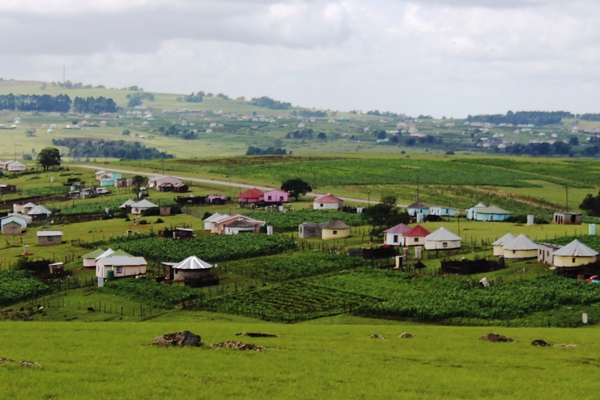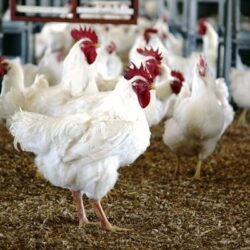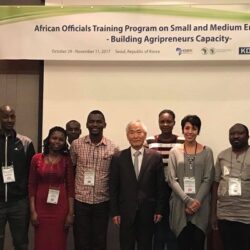Farmers globally find it difficult to get access to investments, but for smallholder farmers on the African continent it is even more so.
During the recent African Agri Investment Indaba, many speakers cited that factors adding to investors shying away from agriculture on the African continent include; policy and political uncertainty, the lack of access to land ownership and the risk of small farms.
In his address to delegates, Omri van Zyl, CEO of Agri SA, mentioned that as a farmer, you compete with all farmers globally, including the top farmers in the sector. He said African farmers must compete with farmers from other countries that are subsidised by their governments.
“Several commercial farmers don’t even make it out there, so how much more difficult would it be for a smallholder farmer to enter the agricultural market?”
Agriculture on the continent lags behind the rest of the world with regards to technology, skills, research, access to inputs, as well as access to funding and yields, among other factors.
So, what should Africa’s farmers do to enter the commercial market, to ensure they are the future providers of food for the vast and increasing African population? And how should we encourage agricultural start-ups?
The answer is still unclear, but here are some insights from the investment industry made during the Indaba.
HOW DO WE ENCOURAGE THE NEED FOR START-UPS, SINCE INVESTORS TEND TO SHY AWAY FROM FUNDING THEM DUE TO THEIR RISKIER PROFILE?
According to Jean Craven, co-founder and CIO at Barak Fund Management, start-ups are a tough business, and in agriculture is even more difficult.
“Mentorship is the keyword – real, on-the-ground, mentorship. One aspect that has worked for Barak’s out-grower scheme projects were centralising small growers around a commercial farm.
“These mentorships include skills handover and service provision, and emerging farmers are taken by the hand until they become independent and are able to buy more land and upscale their equipment.”
He said the same principle of mentorship programmes should also apply to agricultural start-up businesses.
“This should not be a hospital pass for mentorship, but something real and on the ground.”
According to Nhlanhla Nene, resident advisor at Thebe Investment Corporation and former Minister of Finance in South Africa, small farmers should pool together to enhance their position to provide produce.
He adds that there should be more engagement on what is needed for smallholder farmers to become commercial. “It is not sustainable to remain a subsistence farmer. A clear and proper path should be created for smallholder farmers to become commercial.”
ANOTHER QUESTION IS THE ISSUE OF SMALLHOLDER FARMERS ON COMMUNAL LAND. ARE THERE ANY WAYS TO COMMERCIALISE SMALLHOLDER FARMERS ON COMMUNAL LAND, ESPECIALLY SINCE IT IS SAID THAT COMMUNAL LAND IS WHERE MOST OF SA’S FERTILE SOILS LIES?
Nene: “One issue for investment companies when they invest is security when offering a loan.”
Commercial farmers, or landowners, can offer their land/farm as collateral when they apply for a loan or funding, or start their farming enterprise. Communal farmers don’t have title deeds for the land they farm and thus find it much more difficult to access loans for their farms.
“The missing part is ownership of land. It is important for government to create an enabling environment for farmers in communal areas to use their land. Either through a government directive or making sure there is some form of ownership of land.
“At the end of the day it is an asset that is lying there and it can’t be translated into value unless there is some form of ownership.”
Craven: “This company has ventured into several projects where smallholder farmers were a focus point.”
“I saw more success in a top-down approach, where we created markets by supplying storage facilities to farmers, rather than the bottoms-up approach where projects were started where smallholder farmers was supported in every step along the way to deliver their produce.”
HOW DO YOU WEAN FARMERS FROM GRANTS?
Nene: “Farmers should understand, the good thing about agricultural is when you assist someone, you are in a partnership from the beginning.”
When you do that, it is important to understand that these farmers should become a commercial enterprise, that is able to sustain themselves beyond that support.
“This support should not only be technical support, but also building skills – in agriculture and running a business. Farming grants are not charity. Farmers should understand their farm is an asset and that it not only brings in money, but should also be grown.”
He said farming should also be made more attractive to children and they should know they can apply other skills like accounting to farming.
“Agriculture is not only about wearing khaki boots and being out there, but there are other things that add value in the agricultural space.”
Also read:
EU to move beyond aid to investment in Africa
Command agriculture and the politics of subsidies
Opportunity for banks in agricultural financing – World Bank
“




